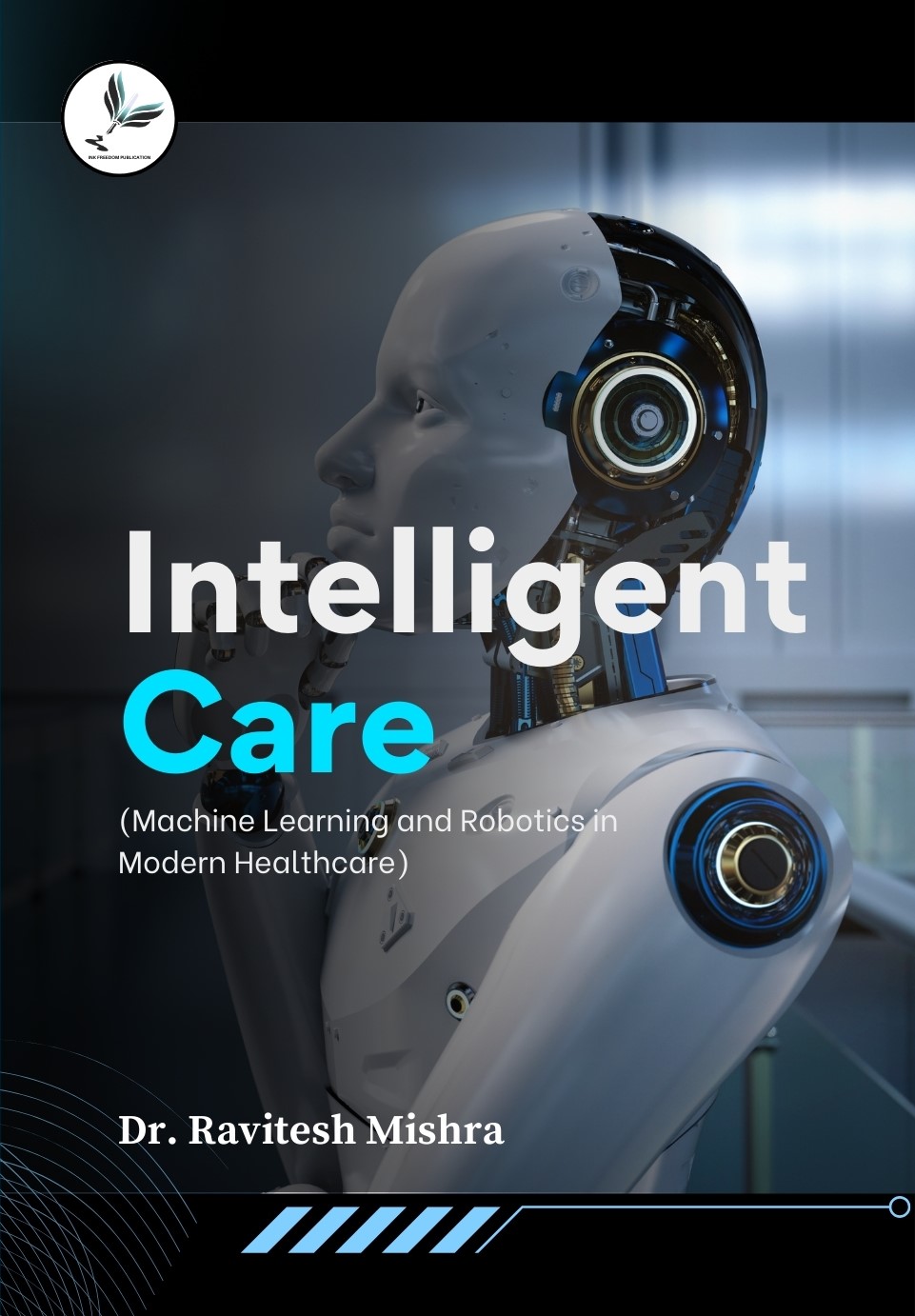
Intelligent Care (Machine Learning and Robotics in Modern Healthcare)
By Malcolm Clark, Ravitesh Mishra
“Intelligent Care: Machine Learning and Robotics in Modern Healthcare” offers an in-depth exploration of the transformative technologies shaping the future of medicine. In an era where healthcare faces unprecedented challenges—rising global populations, aging demographics, and increasing healthcare costs—innovative solutions are essential. This book serves as a comprehensive guide to understanding how machine learning (ML), robotics, and artificial intelligence (AI) are revolutionizing the healthcare landscape, addressing pressing issues, and unlocking new possibilities for patient care. A Holistic Perspective on Technology in Healthcare Healthcare has always been at the forefront of adopting cutting-edge technologies. However, the advent of AI, ML, and robotics has catalyzed a paradigm shift from traditional approaches to a more intelligent, data driven, and patient-centric system. “Intelligent Care” offers readers a holistic view of these transformative tools. From wearable devices monitoring real-time health metrics to robotic surgical systems performing life-saving procedures with unparalleled precision, the book illustrates the profound impact of these advancements on every facet of healthcare. The chapters delve into both the theoretical and practical aspects of intelligent care. Readers will find detailed discussions on the principles of machine learning, robotics, and AI, along with real-world applications in diagnostics, treatment, rehabilitation, and mental health. The book also examines the ethical and societal implications of these technologies, highlighting the need for a balanced approach that combines innovation with empathy and inclusivity. Key Features and Highlights 1. Comprehensive Coverage: “Intelligent Care” provides an extensive overview of the various domains where ML and robotics are making significant strides. Topics include AI diagnostics, robotic surgeries, wearable technology, predictive analytics, and mental health support systems. Each chapter offers a detailed analysis of current capabilities, future prospects, and the challenges that lie ahead. 2. Interdisciplinary Approach: The book bridges the gap between technology and medicine by incorporating insights from multiple disciplines, including computer science, bioengineering, ethics, and public health. This interdisciplinary perspective ensures a well-rounded understanding of the subject matter. 3. Real-World Case Studies: To ground theoretical concepts, the book features numerous case studies showcasing successful implementations of intelligent care systems. Examples include AI tools detecting early-stage cancers, robotic systems assisting in complex surgeries, and wearable devices improving chronic disease management. These case studies provide tangible evidence of the potential and limitations of these technologies. 4. Ethical and Societal Considerations: Beyond the technological advancements, “Intelligent Care” addresses critical ethical issues such as data privacy, algorithmic bias, and equitable access to healthcare innovations. The book emphasizes the importance of designing intelligent systems that are transparent, inclusive, and aligned with the core values of healthcare. 5. Forward-Looking Insights: The final chapters explore the future of intelligent care, including advancements in AI diagnostics, robotics in rehabilitation, and the integration of IoT with healthcare. The book envisions a future where healthcare systems are resilient, accessible, and capable of addressing global challenges.
